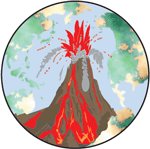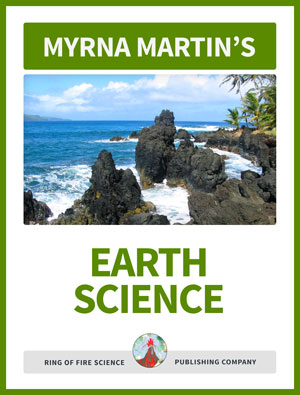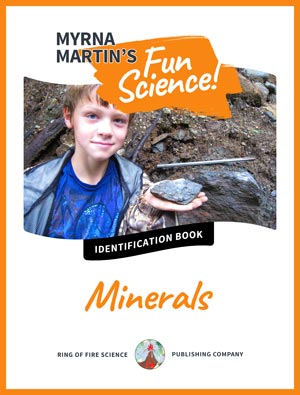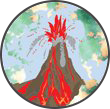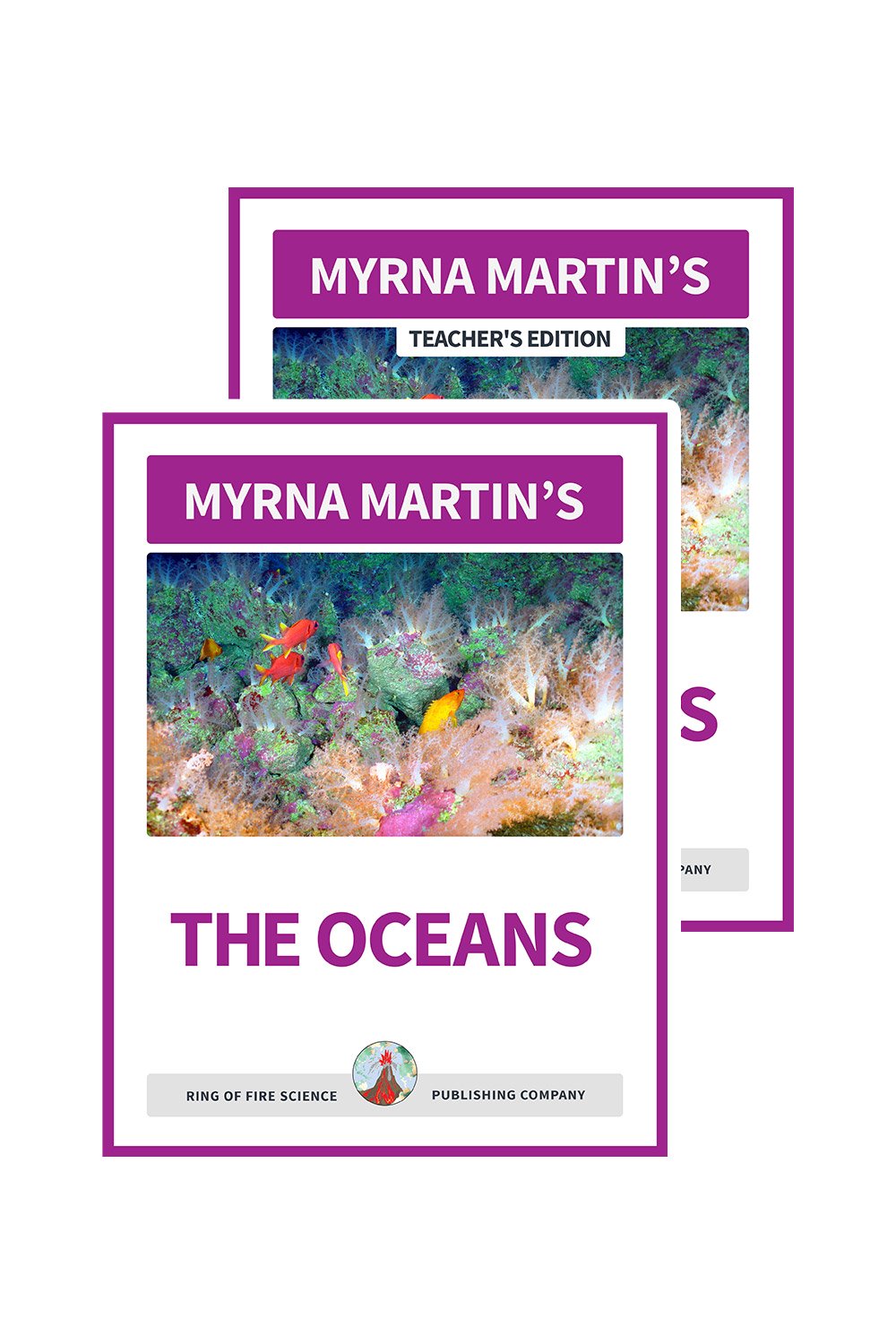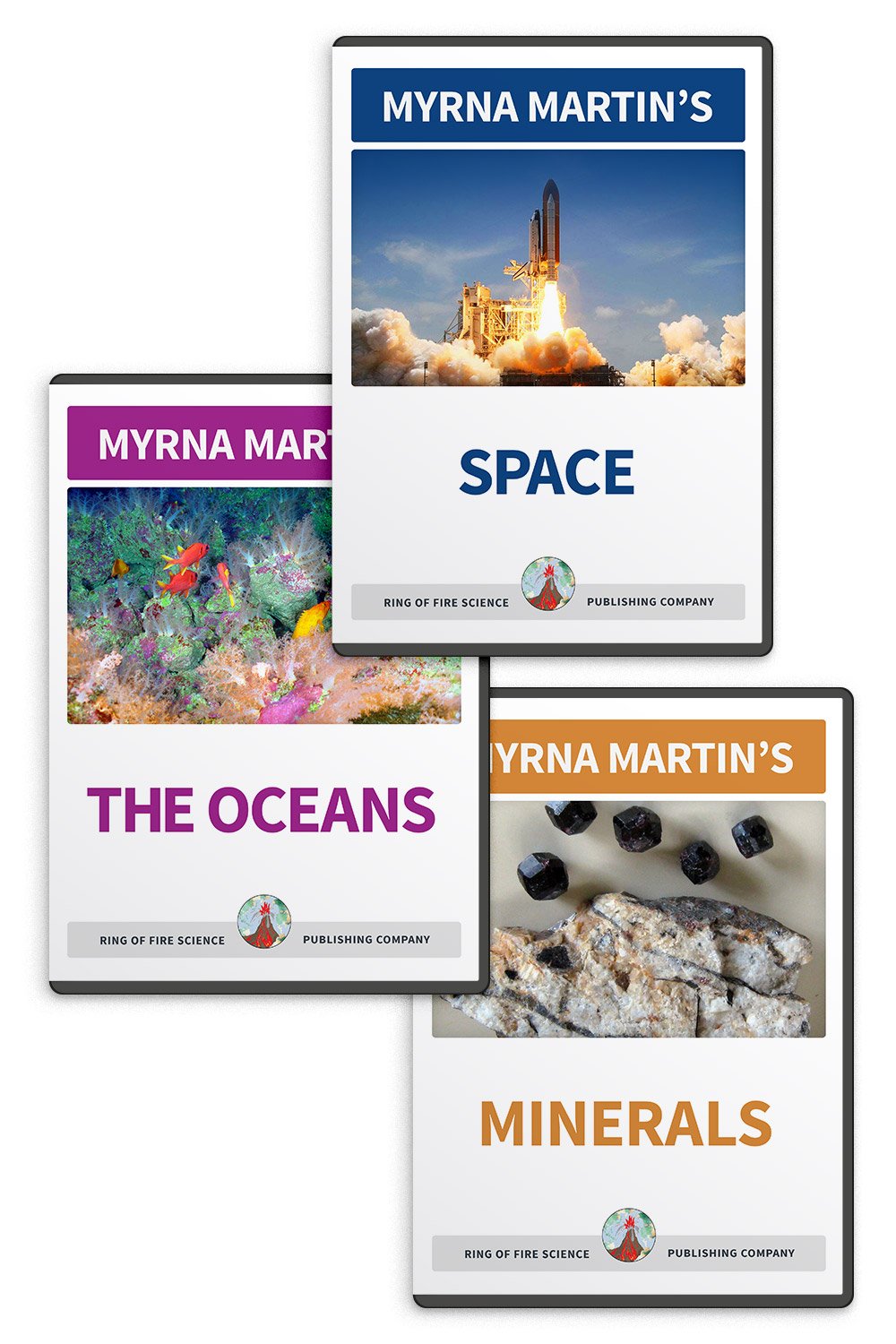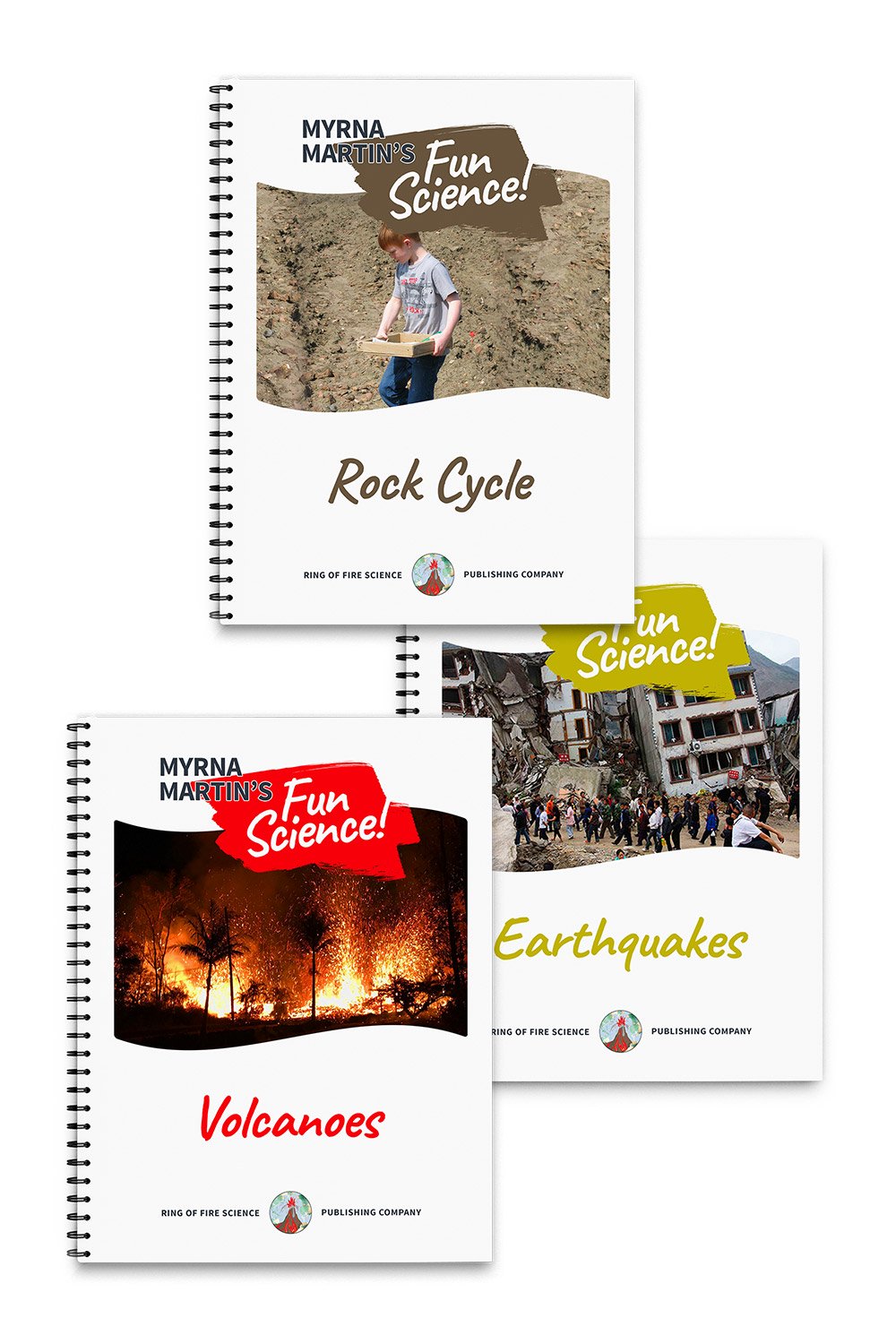Ocean Trenches Separate tectonic plates
Natural tectonic plate boundaries
Ocean trenches are natural tectonic plate boundaries between two crustal plates. When a continental plate converges with an oceanic plate a subduction zone forms. The heavier oceanic plate subducts beneath the lighter continental plate forming a trench.
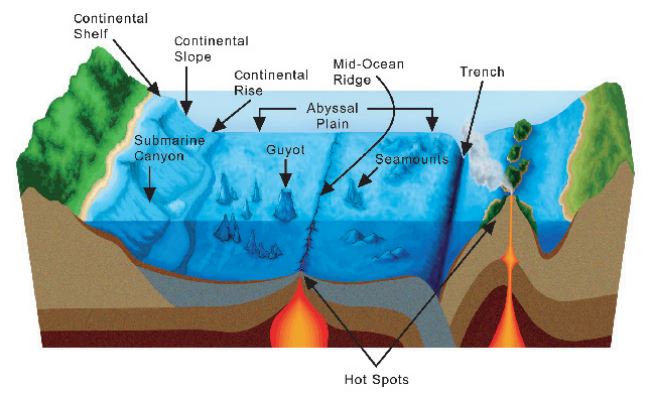
Seafloor showing different areas of the seafloor including a trench NOAA
Mariana Trench forms a subduction zone
Mariana Trench
Trenches form in some areas when two oceanic plates converge forming a subduction zone. The Pacific Plate is subducting beneath the Mariana Plate forming Mariana Trench. The Pacific Plate is older and colder than the Mariana Plate. The trench formed by these two oceanic plates is the deepest spot in the world's oceans and includes the Challenger Deep.
Oceanic trench begins to subduct
Ocean trenches form when a heavier and flexible oceanic plate begins its decent. The seaward side of the trench has a gentle slope of about 5 degrees because the plate must bend as it plunges downward.
Inner wall of the trench
The continental side of most trenches forms the inner wall. The wall has a steeper slope which is usually between 10 and 16 degrees. The two plates slide past each other where they intersect at the bottom of the trench. Most subduction zones are located around the Pacific Ocean.


Click for More Information and to Order
Volcanic arcs
Volcanic arcs
Volcanic arcs form above overriding plates in subduction zones. A volcanic arc is a belt of volcanoes that are fueled by the melting subducting plate. The Cascade Volcanoes are a volcanic arc that stretches 700 miles southward from British Columbia to Northern California on the continental side of the Cascadia Subduction Zone.
Aleutian arc
The Aleutian Arc is a large volcanic arc that has formed as the Pacific Plate subducts beneath the North American Plate. The Aleutian Trench separates the two plates.
KIDS FUN Science Bookstore
Check out Myrna Martin's award winning textbooks, e-books, videos and rock sets. The Kids Fun Science Bookstore covers a wide range of earth science topics. Click here to browse.


